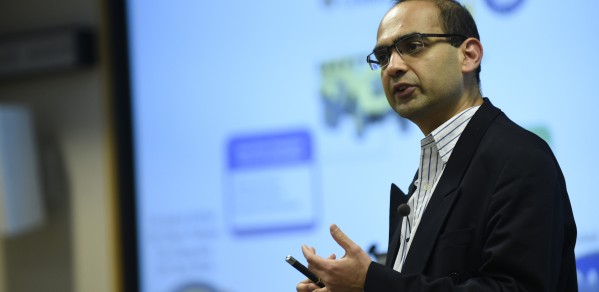
Professor Vikram Deshpande is the 2025 recipient of the prestigious Nadai Medal in recognition of significant contributions and outstanding achievements which broaden the field of materials engineering.
Professor Vikram Deshpande is the world-leading authority in his generation in the emerging subject of microstructural mechanics.
The Nadai Medal awarded by ASME (American Society of Mechanical Engineers) was established in 1975 to honour Arpad L. Nadai, who was a pioneer in the field of engineering materials, contributing particularly to the area of plasticity.
Vikram has also recently received the Zdeněk P. Bažant Medal for Failure and Damage Prevention awarded by the ASCE (American Society of Civil Engineers), for pioneering contributions to damage and failure prevention of metal alloys, lattice-cored sandwich structures, and micro-architected materials across length scales.
He is a leading authority in failure modeling in complex materials, including architected solids and electromechanical systems. His work combines deep theoretical understanding with insightful experiments to grasp complex phenomena over a wide range of topics, ranging from the failure of structures by shock waves due to blast loading to the fracture of solid electrolytes in Li-ion batteries.
His breadth of interests, theoretical and experimental skills, and general influence on solid mechanics research worldwide make him one of the strongest contemporary contributors to the field.
Examples of his work include:
- invention of a new class of architected materials for diverse applications including lightweight structures, energy absorption and shock mitigation.
- development of theories to exploit fluid-structure interaction effects to enhance the blast resistance of land and sea vehicles.
- creation of computational tools for interrogating the high-temperature performance of alloys used in engines.
- unravelling the role of entropic forces in mechano-transduction within living cells.
- analysing the failure of solid electrolyte lithium ion batteries.

